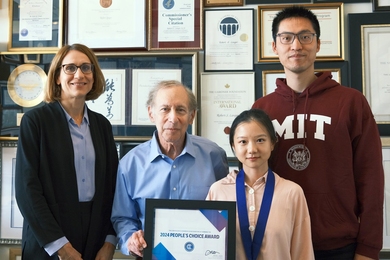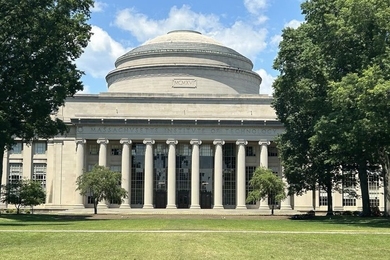The School of Science welcomes two new professors to the Department of Brain and Cognitive Sciences this spring semester:
Steven Flavell examines how the brain sustains or switches between behavioral states at the molecular and circuit levels. Using C. elegans as a model, he probes neuromodulators that coordinate activity throughout neural circuits to generate locomotion behaviors linked to the feeding or satiety states of an animal. Flavell seeks to uncover fundamental principles of neuromodulation of circuit function and to examine these neuromodulatory principles in mammalian models of switchable behavioral states. His long-term goal is to understand how neural circuits generate sustained behavioral states, and how physiological and environmental information is integrated into these circuits. Gaining a mechanistic understanding of how these circuits function will be essential to decipher the neural bases of sleep and mood disorders.
After Flavell received his BA in neuroscience from Oberlin College in 2002, he earned his PhD in neurobiology in 2009 at Harvard University under the direction of Michael Greenberg, focusing on how activity-regulated transcription factors control synapse formation using the mouse model. In 2009, he began his postdoctoral work on the locomotion states of C. elegans in the lab of Cornelia Bargmann at Rockefeller University, where he was a Helen Hay Whitney Fellow. Flavell joins the Department of Brain and Cognitive Sciences as an assistant professor, with an additional appointment as an investigator at the Picower Institute for Learning and Memory.
Roger Levy asks theoretical and applied questions about the processing and acquisition of natural language, with a focus on how linguistic communication resolves uncertainty over a potentially unbounded set of possible signals and meanings. Levy examines such problems as how a fixed set of knowledge and resources can be deployed to manage uncertainty and derive meaning from natural language, how the underlying knowledge that supports this processing is represented in the brain, how those representations support language production, and how those representations are acquired. Combining computational modeling of large data sets with psycholinguistic experimentation, Levy’s work furthers our understanding of the cognitive underpinning of language processing, and helps us design models and algorithms that will allow machines to process human language.
Levy joins the Department of Brain and Cognitive Sciences as an associate professor with tenure, following a faculty appointment in the Department of Linguistics at the University of California at San Diego. Levy received his BS in mathematics from the University of Arizona in 1996, followed by a year as a Fulbright Fellow at the Inter-University Program for Chinese Language Study, Taipei, Taiwan and a year as a research student in biological anthropology at the University of Tokyo. In 2005, he completed his doctoral work at Stanford University under the direction of Christopher Manning, and then spent a year as a UK Economic and Social Research Council Postdoctoral Fellowship at the University of Edinburgh. Levy has received such distinguished awards as the Alfred P. Sloan Research Fellowship and the NSF Faculty Early Career Development (CAREER) Award.






